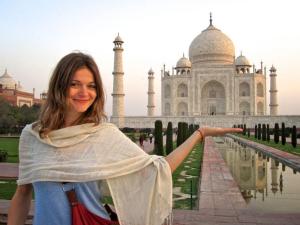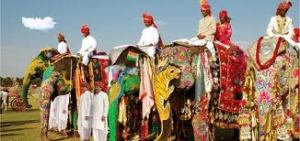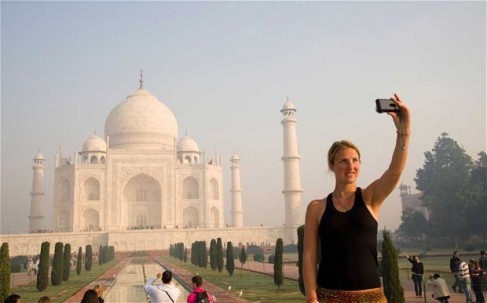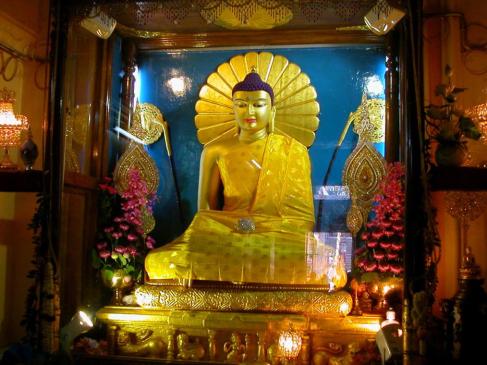
They all fight for their freedom. The Freedom to study, to fall in love, to live their lives without being judged, to live without being aggressor. In December 2012, a student was the victim of a gang rape in a bus in New Delhi. While the 23 years-old girl was still struggling for her life, hundreds of inhabitants streamed in the heart of the Indian capital to ask for justice and liberty. A new feminism movement was born, claiming for protection of women’s liberties. It was the first time so many Indians from all castes, all genders, all backgrounds fought for the same idea, and the first time an aggression was so public and broadcaster.
The four responsible men were condemned to death. Thanks to the changing world, we have women rising up actively and encouraging women specialized programs. One such example is the lady driver cab service launched in New Delhi by a woman Entrepreneur. Then we have
woman only tours, also launched by lady entrepreneurs such as www.enrichetravels.com that ensure women tours are more fun and safe.
Besides rapes, Indian women have been victims of other violations of their fundamental rights. In order to fight those inequalities, many women have stood up. A group of women in Uttar Pradesh decided not to wait for a government move toward their rights; the Gulabi Gang women took arms. Also called the Pink Saris Gang, it gathers around 20 000 women of the Banda district. They unified for respect and justice in a context of poverty and a bellyful of traditions. They managed to gather many men to their cause by also fighting the caste system, women in particular. Ladies special services have fast caught up in India and women are now getting more and more aware of what they can together do.
Ladies special tours organized by enrichetravels.com Focus largely on women so they can enjoy life better, even when they are Alone.Te Company is again run by a feminist.
Another emblematic figure of this revolution is Kavita Krishnan, the Progressive Women Association leader, who pronounced a speech after the gang rape in Delhi that became a manifest of a very new feminist movement in India. There, it might have had the same power than Martin Luther King’s “I have a dream”. In an interview she says that the event created dialog and communication among Indians; they mainly united to denounce the violence of the tragedy; but a gap with the institutions is still very present. Over new laws, more judges, many more hanged rapists, a new state of spirit of the society is needed. The Indian thinking is characterized by a patriarchal opinion, in which rapes are often the victim’s fault. If a girl complains about an aggression, assumptions will be made on her, as also stated by Sarojono Sahoo, another active feminist.
However, Indian feminism is older than a year. Rama Melkote, founder of Anvashi, the Feminine Studies Research Center of Andhra Pradesh, asserts that after the Independence many women started to participate to the fight for women rights. Since then, questions have been considered like violence made toward women, the lack of education, analphabetism, working conditions, etc, permitting to notice that their status have not really evolved. Many actions have been made, like the creation of Stree Shakti Sanghatana (Feminine Power Organization) in 1975. Since then, the mobilization keeps on growing, putting pressure on the government and on the population. Indians girls and many men are gathered to fight for peace among genders, but it seems that time is always the only independent variable that will make the society evolve.
 India is a place defined by the magnetism of religious essence in its air, the colorful shades of its incredible culture and traditions and finally graded with the shine of gold and silver through its forts, monuments and palaces.Travel in India and have a delicate feel of the untouched heritage and tradition of sounding India. India provides you the best of tourism experience by a natural touch through its famous wildlife sanctuaries and forests of South India. The well crafted touch of culture and traditions is provided to you by North India comprising of forts and palaces of Gujarat and Rajasthan, popular and spicy food of Punjab and frostiness of beauty driven hills of Shimla, Himachal Pradesh and more.
India is a place defined by the magnetism of religious essence in its air, the colorful shades of its incredible culture and traditions and finally graded with the shine of gold and silver through its forts, monuments and palaces.Travel in India and have a delicate feel of the untouched heritage and tradition of sounding India. India provides you the best of tourism experience by a natural touch through its famous wildlife sanctuaries and forests of South India. The well crafted touch of culture and traditions is provided to you by North India comprising of forts and palaces of Gujarat and Rajasthan, popular and spicy food of Punjab and frostiness of beauty driven hills of Shimla, Himachal Pradesh and more.














.jpeg)
.jpeg)






.jpg)
